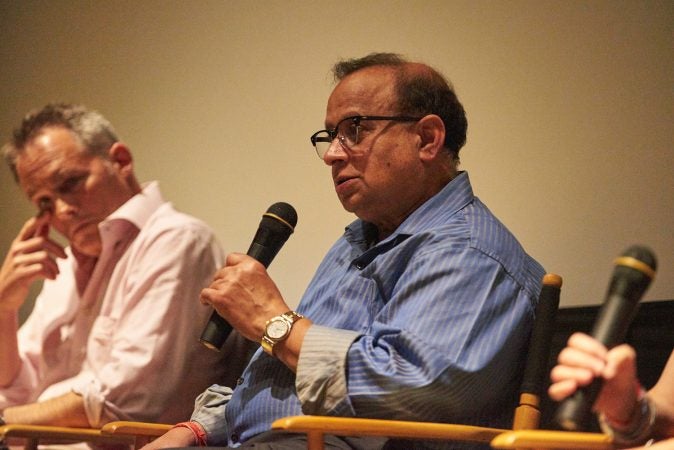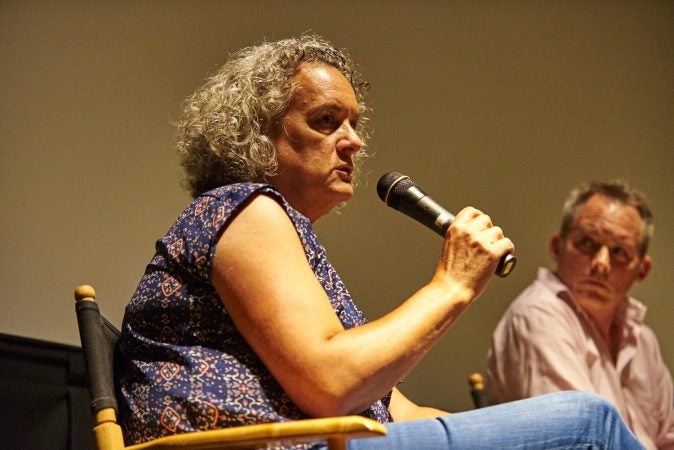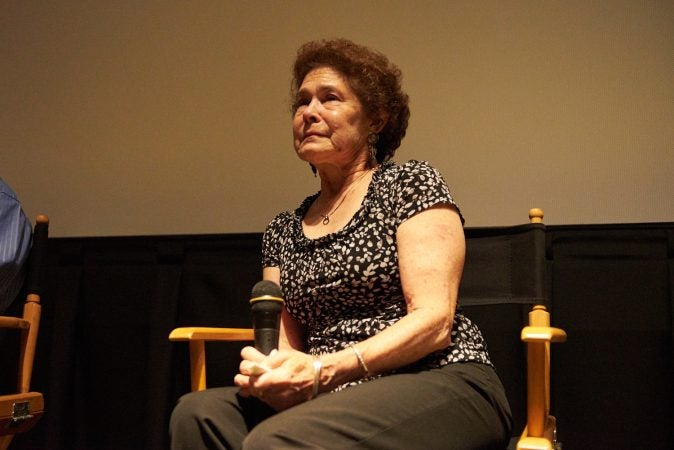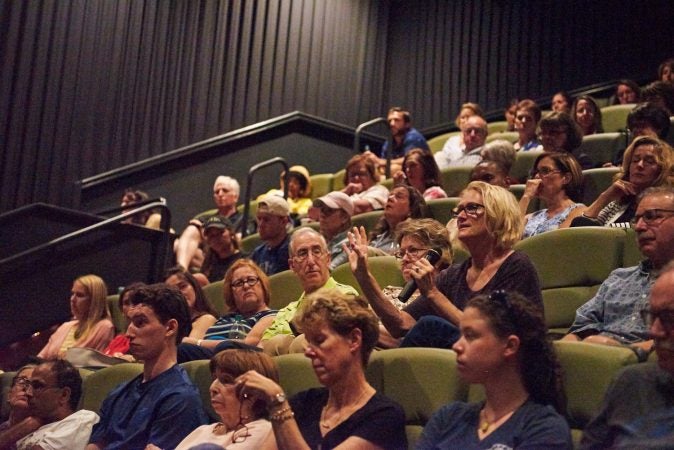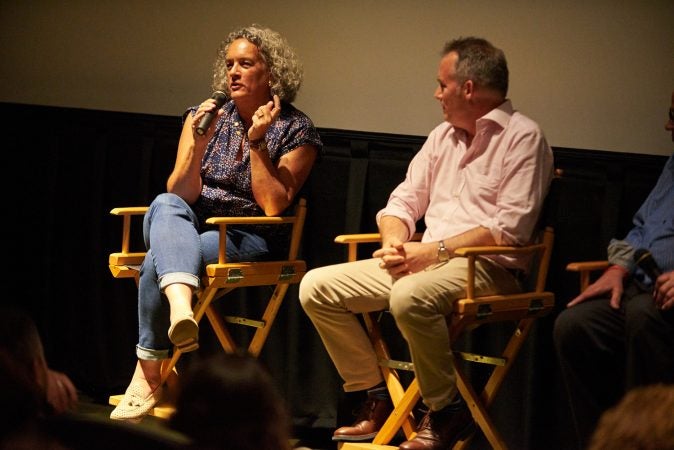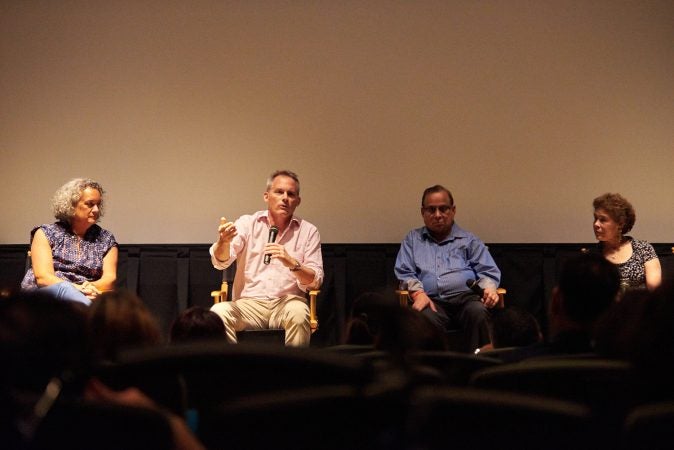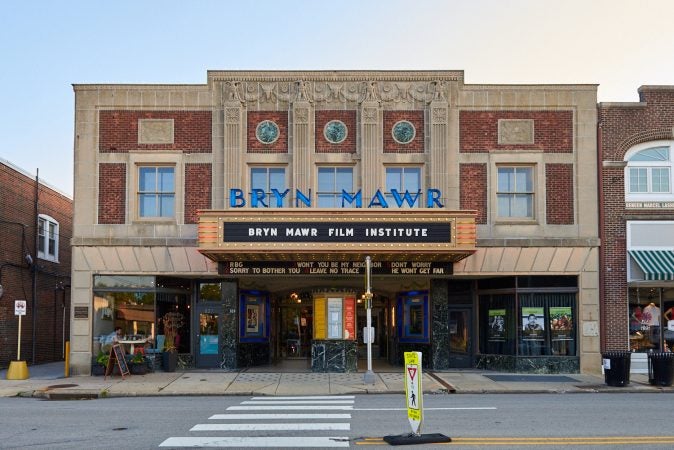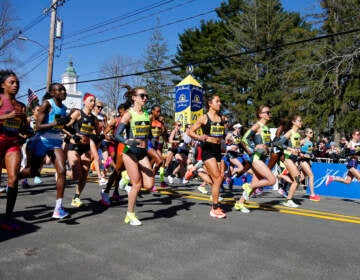Family of man falsely accused in Boston Marathon bombing screens film in Bryn Mawr hometown
'Help Us Find Sunil Tripathi' shows how unverified accusations on social media can snowball into mainstream news coverage.
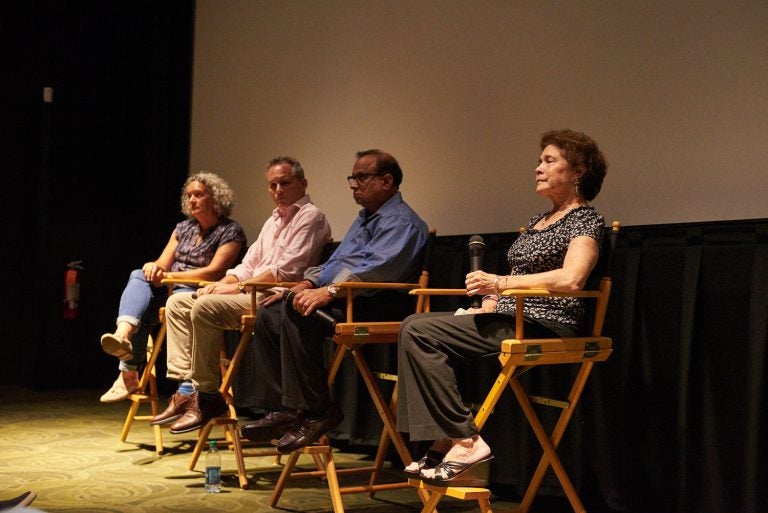
(From left) Executive Producer Elisa Gambino; Director Neal Broffman; father, Akhil Tripathi; and mother, Judy Tripathi; during a Q&A after a screening of 2015 documentary, Help Us Find Sunil Tripathi. The documentary was screened in Sunil's hometown for the first time on July 26, 2018, at the Bryn Mawr Film Institute, in Sunil's hometown. (Natalie Piserchio for WHYY)
Two tragedies combined to intensify the grief of a Bryn Mawr family who lost a son in 2013. This week, the Tripathi family shared that story as the Bryn Mawr Film Institute held the first Philadelphia-area showing of “Help Us Find Sunil Tripathi.”
The documentary, released in 2015, follows Tripathi from his childhood home in Bryn Mawr to Brown University, where, in his junior year, he ended his own life. In the month before his body was recovered from a river near his apartment, Tripathi was misidentified as a suspect in the Boston Marathon bombing, complicating his family’s search.
Sunil’s mother, Judy Tripathi, said the film is a call for mental-health advocacy. Addressing a nearly packed house following the screening, she and her husband, Akhil, said they knew their son was struggling, but didn’t realize the risk of suicide.
“He would go for care of physical ailments, but he wouldn’t go for care of mental illness,” said Judy Tripathi with some difficulty. “Sunil was embarrassed — he felt he couldn’t keep up with his peers and siblings. And it is that piece of mental illness that’s not recognized as an illness.”
The family has since started a campaign to raise awareness about depression and anxiety on campuses. They have partnered with mental health advocates with the DMAX Foundation, in addition to starting their own campaign called Lend a Hand.
Throughout the film, director Neal Broffman intersperses the family’s search for Sunil and the reckoning with his suicide with Reddit and Twitter posts that overlaid Tripathi’s picture with those of Dzhokhar Tsarnaev who was eventually convicted of planting the bombs on April 15 that killed three and injured hundreds.
Broffman, who previously worked for CNN with his wife and executive producer Elisa Gambino, said the film is a call for digital media literacy as it illustrates how unverified accusations on social media can snowball into mainstream news coverage.
“This film is still relevant,” said Broffman, who said he sees the responsibility of news content shifting away from networks and toward social media audiences. “Ultimately, it’s up to us to say, ‘No I’m not going to re-tweet this, I’m not going to say on my social media, my Facebook page, that I read this article and repeat things that are demonstrably not true, that are easily debunked or that are full of hatred. We have to do that.”
In the 10 days before Sunil’s body was found, the Tripathi family was subjected to harassment and false accusations from mainstream and social media. At one point, they were forced to delete a Facebook page dedicated to finding him.
Sunil’s siblings, Sangeeta and Ravi, continued speaking to the media throughout the search for him.
“The pain will never ever go away,” said Akhil Tripathi. “It dulls a bit, and I think they are doing better, but they’ve changed.”
Beth Zamostine, a neighbor of the Tripathis, said she heard the claims about Sunil from her youngest son who was friends with Sangeeta.
“The story kind of faded, and I’m glad that it’s brought up again because it showed the hatred and how people can jump on the bandwagon,” said Zamostine.
As for Akhil Tripathi, his only regret is not getting his son the mental health care he needed.
“My anger and hostility have completely gone away out of this sad experience,” he said. “I think about Sunil, and I recall the conversations. Every moment I think about Sunil, I think about what we could have done differently.”
WHYY is your source for fact-based, in-depth journalism and information. As a nonprofit organization, we rely on financial support from readers like you. Please give today.


